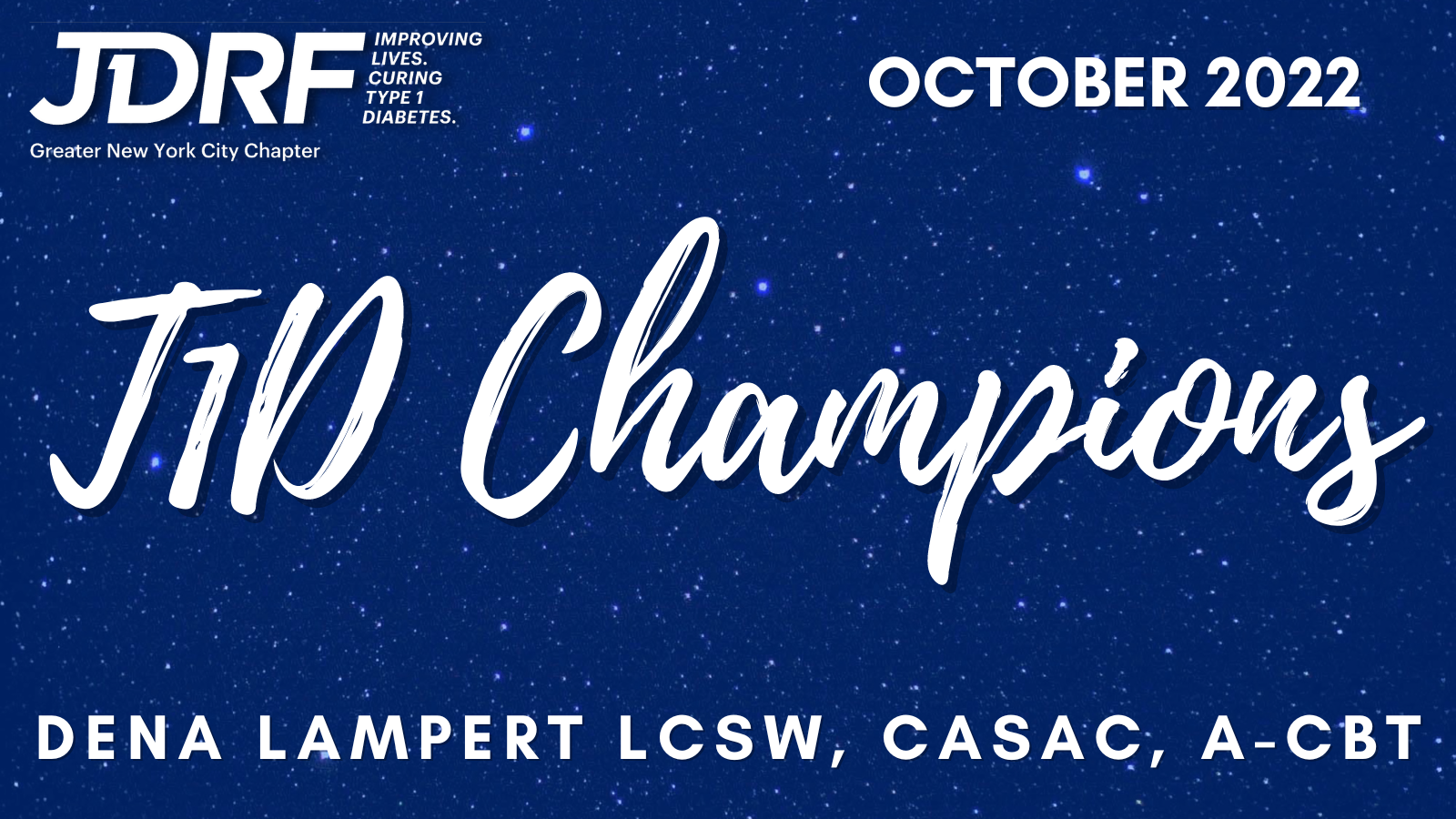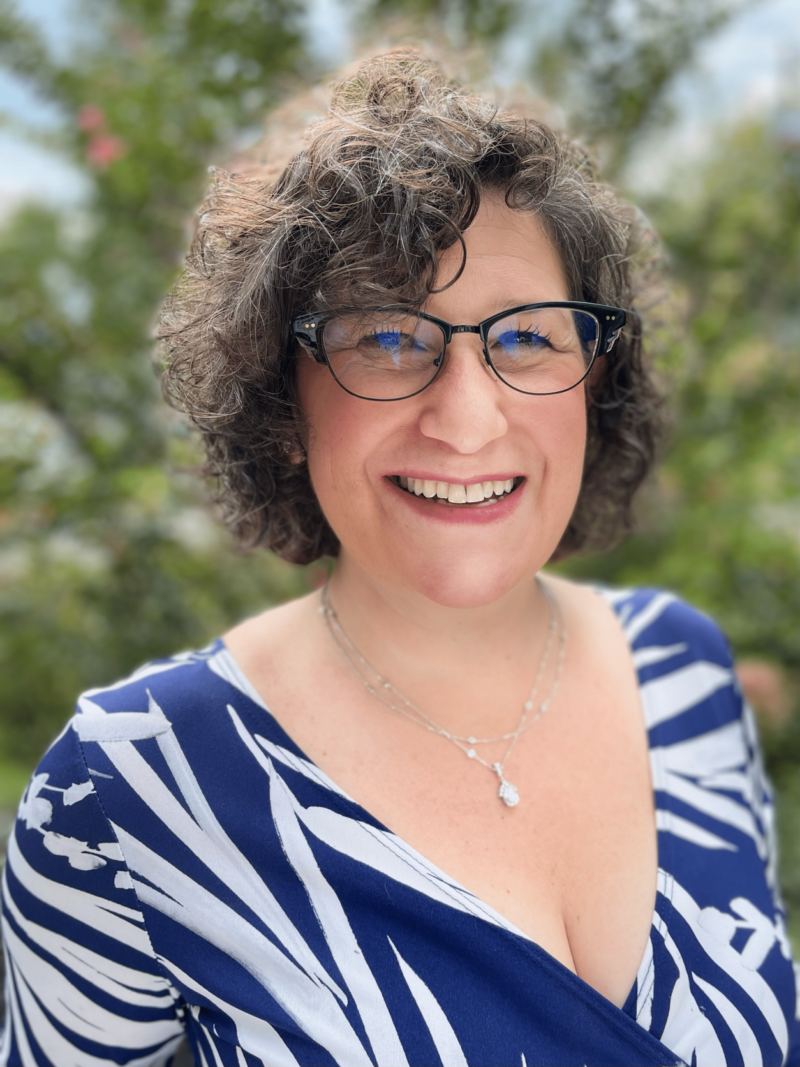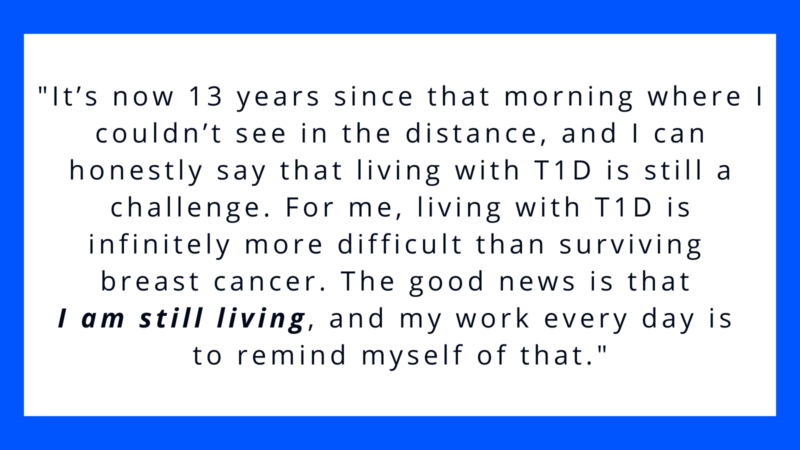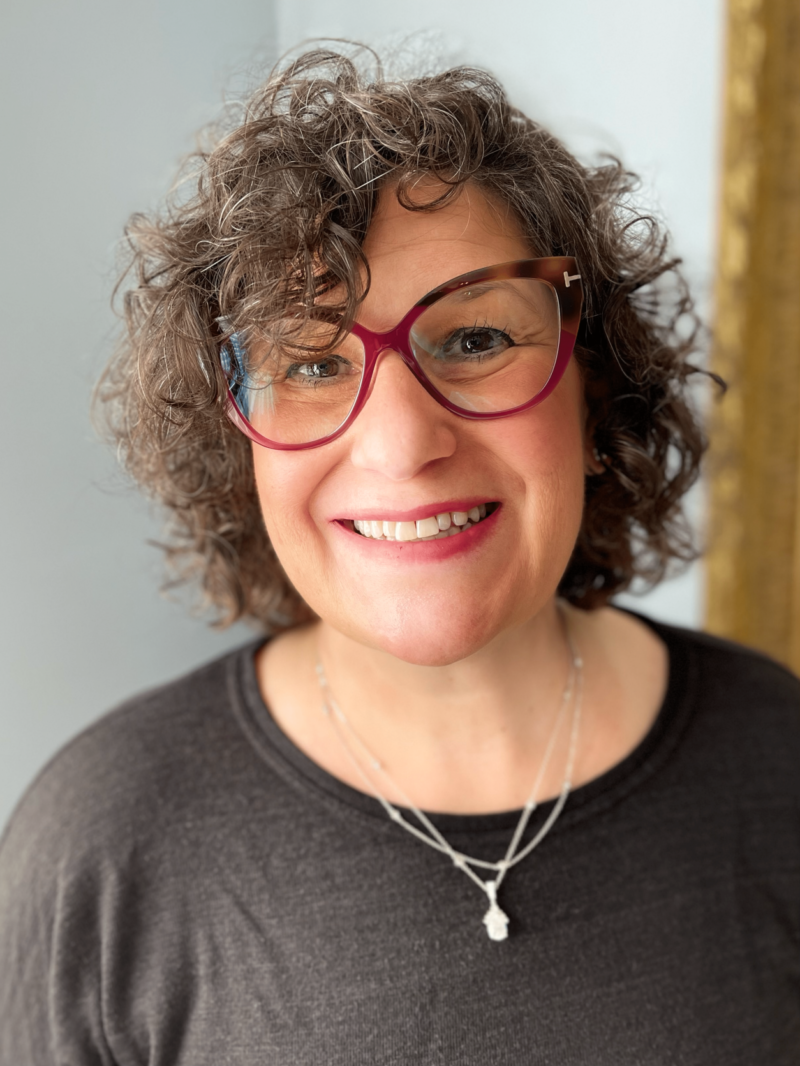October T1D Champion
Meet our October T1D Champion!

T1D Champions are invaluable members of the type 1 diabetes (T1D) community who drive research progress, advocate for government action, and provide support to enrich the lives of families impacted by this disease.
This month, we are honored to highlight Dena Lampert LCSW, CASAC, A-CBT. Dena has been living with T1D for 13 years and since her diagnosis, has committed to supporting those affected by this disease through JDRF support groups and her professional work as a therapist. Dena currently owns a group psychotherapy practice in Rockville Centre, New York called Triangle Cognitive Therapy. She oversees a group with nine other mental health providers who offer individual, group, family and couples therapy to adolescents and adults. Read on to learn more about Dena’s T1D journey.
————————————————————————————————————————–

Just prior to my 40th birthday, I woke up one morning and I couldn’t see. I wasn’t blind but my 20/20 vision had definitely changed on this particular morning. I chalked it up to turning 40 and made an appointment with an eye doctor thinking it was time for glasses. I was told at that appointment that this was not a typical age-related change in eyesight and that I probably have Diabetes. I was pretty shocked as Diabetes does not run in my family and it had only been 5 years since I survived a breast cancer diagnosis and treatment.
After discussions with multiple doctors, many sleepless nights, anxiety attacks, mood swings and an overall feeling that was just terrible, I was successfully misdiagnosed with type 2 diabetes. For the next 18 months I was prescribed every type 2 medication on the market in various cocktails. Ultimately, none of them were effective for me. My body was wasting away. I felt sick and depressed all the time.
That’s when I found a doctor who correctly diagnosed me with type 1 and started me with insulin. Now, many of us know that trying to figure out an insulin regimen and managing it is no picnic, however I finally started to feel a little stronger and healthier.

Long before I had T1D, I became a clinical social worker. After I was diagnosed, I wondered how the disease affected others emotionally. Did other people struggle with it like I did? What was it like for a child or adolescent to have to deal with all the stress on top of the normal stress of adolescence? So, about 10 years ago, I reached out to the JDRF Long Island Chapter, which is now part of the Greater New York City Chapter. I wanted to work with others who had this disease. Ultimately, I worked with the Chapter to find ways that I could run support groups and provide presentations for adolescents and their families involved with JDRF.
Additionally, I have had the privilege to work with a number of adolescent and adult clients who have reached out to me for therapy for various reasons, who are also managing T1D. This group of people (and I will include myself) are an incredibly strong and resilient group. We have been forced to live in a constant state of multitasking. Engaging in simple activities always requires extra steps for someone with T1D. For example, when I get in my car to head to work, here are some of the following questions I need answered before I leave:
- Do I have enough insulin in my pump?
- Is the pump working correctly?
- What does my continuous glucose monitor (CGM) say?
- Is the CGM working correctly? (Too often the answer to that one is “no”)
- Are my pump and CGM in the correct position to communicate with Bluetooth?
- Is my blood glucose stable?
- Do I have an adequate lunch planned?
- Do I have something to treat my lows?
- What do I do if I am running high?
When managing T1D, this is a regimen we often go through just to get through an everyday task and will repeat multiple times a day. We are always required to hold ourselves to a higher standard, otherwise we will quickly feel really sick. Imagine what we need to internally organize for ourselves when we want to try something new? Imagine what it is like for someone to go to work or school, get good grades, excel at a job, maintain relationships and friendships, raise children, exercise, play sports, take vacations, hang out with friends, read a book, or even take a nap with the perseverating question looming in the background… “What is my blood glucose level right now?”
Those with T1D and their families are rockstars. It takes strength, endurance, patience, and flexibility to live life one day at a time. I truly believe that this community could be capable of moving mountains if we didn’t have to expend so much energy on our blood sugar.

I have been asked if I have any advice for those impacted with T1D and specifically for those diagnosed as adults. I had to ask my husband to help me with this question because I do not consider myself someone who has mastered the ability to successfully manage this disease. His word of advice…always expect the unexpected. This disease behaves differently every day. What worked yesterday could fail tomorrow. I think if we can find a way to accept that successfully managing the illness is more about training ourselves to be flexible and roll with the punches rather than striving to achieve the elusive 100mg/dl. I personally continue to be a work in progress with this one.